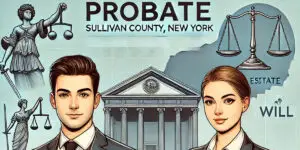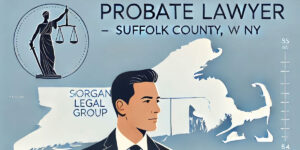What is a will contest?
A will contest is a situation where a party affected by a last will and testament challenges the validity of the will during probate. A person may contest the will during probate if they feel cheated out of inheritance or have reasons to believe the document was written in a state of undue influence.
If there is any reason to have doubts about the validity of a will in Long Island, the will may be contested. That is why you need to ensure your document is properly drafted with help from an experienced attorney to avoid discrepancy or any other conflicting situation.
Factors that can result in will contest in Long Island
The following things can result in a will getting contested in Long Island:
- Unreliable mental capacity – Your will may be challenged by a party who believes you weren’t of a sound mind at the time you created the will.
- Fraud – An individual can challenge your will because they believe someone else must have lied to you to change your mind about who you bequeath property to.
- Lack of validity – Someone may contest a will because a requirement was ignored, such as not having it signed by two witnesses.
- Undue influence/duress – someone may also claim you were pressured by someone stronger than you to write your will especially in their favor. This may happen when a least expected individual is named as the highest beneficiary of the will. However, that is not always the case by any means.
The claim must be proven before a will contest can invalidate the will
The aggrieved party who challenges the will must be able to prove that their claim is true. Such person may have to hire a probate attorney to represent them in court.
Notably, it is not always easy to prove will contests resulting from fraud and undue influence.
Process of will contest in Long Island
If you have reasons to believe the will should be re-evaluated and you wish to contest it, the first step should be to consult a lawyer experienced in will contest. This could be a probate attorney or a wills, trusts and estate attorney, or an estate litigation attorney. The attorney will usually advise you if you have legitimate grounds to challenge the will.
A will contest formally begins when the aggrieved party, probably with the help of an attorney, files an objection to probate in the Surrogate’s Court handling the will. This must be done on or before the return date of citation issued by the court.
Preliminaries (1404 examination)
If you are looking to challenge a will, you have a right under SCPA 1404 to examine the attesting witnesses and attorney involved in drafting the will. You can also request the medical report and financial records of the decedent to check for foul play and if there are any evidence to show fraud or mental incapacity. This 1404 examination is a great way to gather evidence and determine if you have justifiable grounds for contesting the will. If you have hired an attorney, they can help you cross check the records and spot relevant information to build your case.
But there is an even greater importance of 1404 examination.
There is a clause known as terrorem clause, which states that any beneficiary who contests a will and loses forfeits their share of the will. But when you carry out a 1404 examination, you boycott this clause. The examination therefore protects you.
After completing the examination, you have up to 10 days to file your will contest. Your petition must contain your reasons for challenging the will and a demand for a trial.
The court will then notify all interested parties about your objection. Sometimes, some court may look towards negotiating settlement.
If the will is found to be invalid, it is discarded and the estate will be disbursed according to Long Island intestate succession. In some cases, only some provisions in the will are discarded, while other non-affected parts are allowed to stand.
Get help
If you are looking towards contesting a will in Long Island, get help from a Will Attorney near you.









